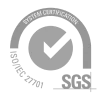
Key Takeaways:
- The main challenge of artificial intelligence (AI) is that its decisions are not often transparent, which can lead to trust and ethical issues. Blockchain can help AI with this.
- Certain key features of blockchain, such as its immutable, transparent digital records and decentralised data storage, could help provide insights into a typically centralised and opaque AI.
- In addition to establishing trust, and enhancing data security and integrity, blockchain could also improve AI in the areas of augmentation, automation, and computing power.
- There are many real-world use cases of how blockchain and AI could work together in different industries.
The Problem With Artificial Intelligence
The key advantage of artificial intelligence (AI) is its ability to simulate human reasoning and react quickly to large volumes of many different inputs. However, this is also its drawback, as the complexity of the AI decision-making process is often not transparent. Complex machine learning models in AI, such as deep neural networks, are often black boxes. This problem is known as “explainability,” or the lack thereof, and can lead to trust and ethical issues.
How Can Blockchain Improve AI?
Some key features of blockchain — like immutable, transparent digital records and decentralised data storage — could help offer insights into a typically centralised and opaque AI. In other words, blockchain could potentially provide trust, privacy, and accountability to AI.
Here’s how this could work in more detail:
Trust
Accountability is one of the challenges AI is facing, affecting the trust people have in its outputs. To trust AI, how its algorithms work must be explainable. This understanding would lead to more confidence in the accuracy of AI outputs.
Using blockchain’s immutable digital record could help to better understand the framework behind AI and the source of the data it is using, addressing the challenge of explainable AI. This could help to improve trust in AI’s data integrity and, by extension, in the recommendations that AI provides.
Data Security and Integrity
Blockchains’ decentralised data storage can act as an audit trail to show users how their data is being used by companies and other centralised organisations. If AI models are stored and distributed on blockchains, their decisions could become more decentralised, accountable, and transparent.
Augmentation
By providing access to data both internal and external to an organisation, blockchain can help AI to expand by allowing for more actionable insights, better management of data consumption, and model sharing. This could potentially create a more trustworthy and transparent data market.
Automation
Combining AI and blockchain could provide value to multiparty business processes by reducing the need for human intervention. Blockchain technology can remove potentially unnecessary third parties from multiparty transactions; which can, in theory, accelerate the speed of, and increase efficiencies across, those transactions. Reducing the friction between transactions could empower individuals to own their data, while blockchain ensures the security of the transaction process.
Computing Power
AI is very resource-intensive and can require large amounts of computational power, which centralised data servers might not be able to cope with. Distributed ledger technologies like blockchain could help by utilising the computing power of many machines.
The Flipside: Can AI Help Blockchain Technology?
AI could also bring benefits to blockchains. For example, AI could improve the intelligence of blockchain-based business networks and give them a competitive edge, as it can quickly and comprehensively read, analyse, and find linkages between data.
AI models incorporated in smart contracts that are implemented on a blockchain could utilise predetermined thresholds and events to execute transactions like re-orders, payments, or inventory purchases, as well as suggest expired products to recall.
Furthermore, AI algorithms could potentially help with the detection of fraudulent activity on the blockchain.
Thus, AI can work together with blockchain to further scale and automate processes for evaluating transactions.
What Are Some Potential Use Cases for Blockchain and AI?
There are many examples of how blockchain and AI could potentially work together in different industries. The chart below breaks down some important ones.
Final Words: Are AI and Blockchain the Future?
AI is capable of simulating human reasoning and reacting quickly to large quantities of inputs, but this can also be a drawback since the decisions made by AI are often not transparent.
Some key features of blockchain — like immutable, transparent digital records and decentralised data storage — might help to offer insights into a typically centralised and opaque AI. To the extent that these features are feasible and desirable in the given context, blockchain could potentially provide trust, privacy, and accountability to AI.
Other ways that blockchain could improve AI are in the areas of augmentation, automation, and computing power. Today, there are already many examples of how blockchain and AI might work together in various industries, including healthcare, life sciences, financial services, and supply chain.
The full report on AI and its use cases, including more examples and references, is exclusive to our Private members.
Interested to know more? Sign up as a Private member to join our Crypto.com Exchange VIP Programme and for a chance to collect a “Loaded Lions” NFT.
Tracking AI Tokens in the Crypto.com App
The rise of AI technology has led to the emergence of new AI tokens that are quickly gaining popularity. To meet this interest, the Crypto.com App has added a new category on Track Coins so users can easily follow the top AI tokens.
Find all of the categories listed here.
Due Diligence and Do Your Own Research
All examples listed in this article are for informational purposes only. You should not construe any such information or other material as legal, tax, investment, financial, or other advice. Nothing contained herein shall constitute a solicitation, recommendation, endorsement, or offer by Crypto.com to invest, buy, or sell any coins, tokens, or other crypto assets. Returns on the buying and selling of crypto assets may be subject to tax, including capital gains tax, in your jurisdiction. Any descriptions of Crypto.com products or features are merely for illustrative purposes and do not constitute an endorsement, invitation, or solicitation.
Past performance is not a guarantee or predictor of future performance. The value of crypto assets can increase or decrease, and you could lose all or a substantial amount of your purchase price. When assessing a crypto asset, it’s essential for you to do your research and due diligence to make the best possible judgement, as any purchases shall be your sole responsibility.





